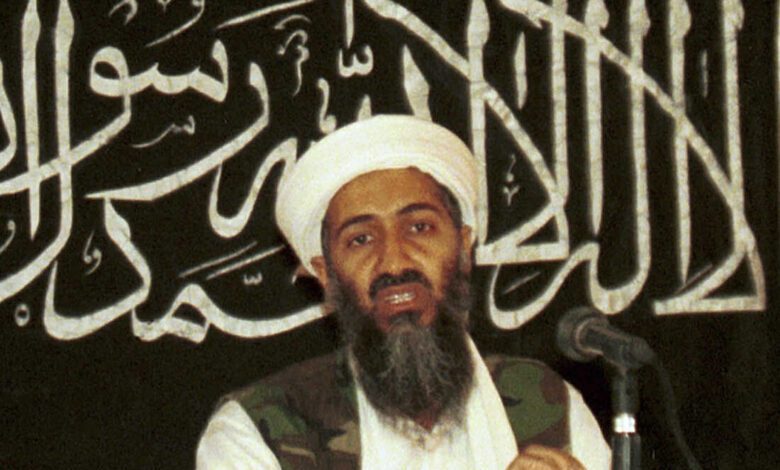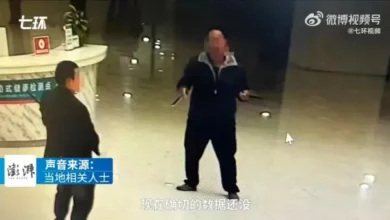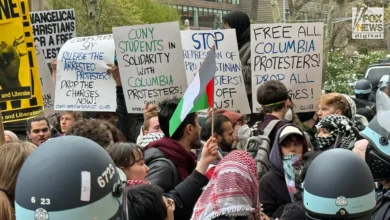What is the controversy surrounding Osama bin Laden’s viral “Letter to America”?
Written in the wake of al Qaeda's strike on US soil, the letter contained antisemitic remarks, condemned US support for Israel, and charged Americans with funding the "oppression" of Palestinians.

The notorious video-sharing app TikTok, where Osama bin Laden’s “Letter to America” first appeared, has sparked an explosive debate concerning US backing for Israel in the midst of its Gaza War. Content that promotes an Al-Qaeda leader’s 2002 letter that defends attacks on Americans is currently prohibited on TikTok due to concerns raised by the ongoing Middle East crisis.
But in the context of the Israel-Hamas conflict, a heated discussion about the 20-year-old letter has emerged on the platform this week. The 9/11 attacks, which resulted in the crash of passenger aircraft into the Pentagon and the World Trade Centre in New York, claimed the lives of almost 3,000 people, were orchestrated by bin Laden.
In 2011, after being on the global wanted list for almost a decade, he was apprehended and murdered at his Pakistani compound by US special forces.
What is this heated “Letter to America” about?
Written in the wake of al Qaeda’s strike on US soil, the letter contained antisemitic remarks, condemned US support for Israel, and charged Americans with funding the “oppression” of Palestinians. In addition, it criticises what he called Western “lies, immorality, and debauchery” and makes the case that strikes against civilians and the US were appropriate in light of this.
According to a statement from TikTok, “content promoting this letter clearly violates our rules on supporting any form of terrorism.” It further noted that reports claiming the letter was “trending” on the platform were false. On Thursday, a search for “Letter to America” on TikTok returned no results, along with a warning that the term might be linked to “content that violates our guidelines.”
Many media sources have linked the trend’s inception to a video that a TikTok influencer with 12 million likes on her page uploaded on Tuesday. The anonymous influencer was cited by AFP as stating, “I need everyone to stop what they’re doing right now and go read — it’s literally two pages — go read ‘A Letter to America.'”
According to the French agency, social media users have reacted positively to the letter, with trending searches on TikTok. The divisive platform, however, said that “reports of it trending on our platform are inaccurate” and that there were not many videos involved.
America’s Reaction
Prior to Thursday’s announcement, US senators had again demanded that the Chinese-owned app be banned. On X, the previous Twitter platform, Democratic Representative Josh Gottheimer stated on Wednesday that TikTok was “pushing pro-terrorist propaganda to influence Americans.”
The internet phenomena drew harsh criticism from the White House, and TikTok announced that it was taking action to delete the offending posts. WH spokesperson Andrew Bates stated in a statement on Thursday that “there is never a justification for spreading the repugnant, evil, and antisemitic lies that the leader of al Qaeda issued just after committing the worst terrorist attack in American history.”
The White House declared, “no one should ever insult the 2,977 American families still mourning loved ones by associating themselves with the vile words of Osama bin Laden.” “Particularly now, at a time of rising antisemitic violence in the world, and just after Hamas terrorists carried out the worst slaughter of the Jewish people since the Holocaust in the name of the same conspiracy theories,” it continued.
Guardian Deletes the Letter from Bin Laden
The full text of bin Laden’s 2002 letter was taken down by The Guardian on Wednesday. The news organisation stated on its website that readers will be redirected to the news piece that first covered the letter, as the letter was being circulated on social media without the complete context.
In the past, TikTok has stated that its recommendation system does not force users to view certain content, and since October 7, the business has taken down hundreds of thousands of videos that violated its laws banning the spread of false information and inciting violence.
Countless online observatories have repeatedly stated that it is challenging to fully comprehend the extent to which a particular type of material is popular on TikTok, in part due to the fact that outside researchers have restricted access to the platform’s data.
You might also be intersted in – ‘I apologise, take back my words’ says Nitish Kumar amidst controversy over population control comments



